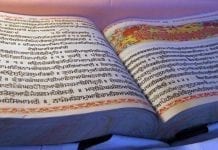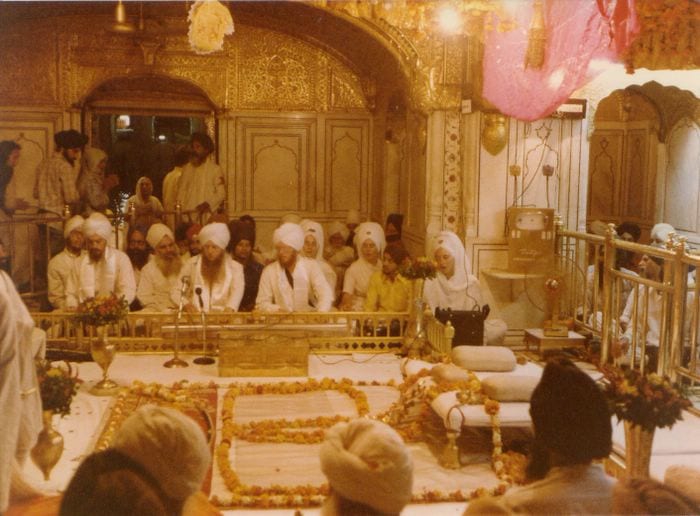ਲੇਪੁ (lep)
Meaning: noun: Harm, ill-effect.
Quote:
ਲੇਪੁ ਨ ਲਾਗੋ ਤਿਲ ਕਾ ਮੂਲਿ॥ ਦੁਸਟੁ ਬ੍ਰਾਹਮਣੁ ਮੂਆ ਹੋਇ ਕੈ ਸੂਲ॥
lep na laago til kaa mool. dust braahmaṇ mooaa hoi kai sool.
(The poison) had absolutely no harmful effect (on the child). But the wicked Brahmin died due to stomach pain. – Guru Arjan Sahib, Guru Granth Sahib, Page 1137
Message: The quote above refers to an attempt to poison Hargobind when he was a child. Prithi Chand, Guru Arjan’s older brother, had feelings of animosity towards him. This was because their father had passed the guru-ship to Guru Arjan who was younger and not Prithi Chand who was older. Prithi Chand then hoped that Guru Arjan will not have any children, thus allowing the guru-ship to pass to his son.
He was disappointed again when Hargobind was born. Prithi Chand then tried many times to kill the child but was unsuccessful. The poison incident was one such attempt. In this incident, he bribed Brahmin Duni Chand who used to babysit Hargobind. He was to administer poison to the child by mixing cyanide in his yoghurt. But the child refused to eat. When the Brahmin tried to force feed him, he started crying. Hearing the cry, Guru ji came in and tried feeding him but he still refused. Guru ji then fed the yoghurt to a dog nearby and it died. He fed it to another dog and he too died. After this confirmation, Guru ji asked the babysitter to tell the truth and he narrated the conspiracy. Ashamed of his misdeed, the Brahmin babysitter died of severe pains in his stomach on reaching home.
In the hymn from which this quote is taken, the Guru expresses thanks to the Divine for saving his son from being poisoned. The Divine has saved the devotee and the sinner has died. Like a father and mother, the Divine is our protector. He listens to our prayers and understands our devotion to Him. If we have faith and remember Him at all times devotedly, then we are protected. No matter who works against us, they will ultimately fail and suffer the consequences of their actions.
Click here to listen to full hymn:
https://www.youtube.com/watch?v=q54ILKwJRzo
Etymology: From Sanskrit lepya (to be smeared, plaster) → Prakrit leppa (wall) → Sindhi lepu (salve applied to the body), Lahndi lep (plaster, ointment) and Punjabi lep (plaster).




